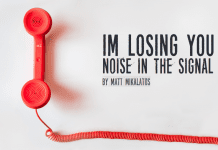By Esther Fleece
Be careful that you do not forget the LORD your God.Deuteronomy 8:11
My grandmother was a classy lady. She traveled the world and was always so polished and put together, from her earrings to her fingernails. I admired her so much. I’m pretty sure she’s where I got my love for matching my handbags to my shoes.
Growing up, we always looked forward to our visits with her. My grandmother was such a good gift giver. And even though we didn’t ever go for the gifts, her gifts would be stacked high from all the birthdays, holidays, and celebrations she missed, and somehow her gifts made us feel thought of, cared for, and loved.
But my brother and I were older now, both teens, and this visit was different. We hadn’t been permitted to see her for years because of my father’s (her son’s) felony charges and the divorce proceedings between him and my mother. Many extended family members had dropped out of our lives as the court proceedings worsened.
The last time I had heard from my grandmother was when I received an unkind, handwritten note from her blaming me for not lying for my dad in the courtroom. I was only a child, but she said I should have protected him more. She said he could have avoided punishment if I would have defended him in the courtroom.
But it was Christmas, and despite this unhappy experience, I had missed her—and maybe it would be, at least for a moment, like none of that had ever happened.
We sat in her lawyer’s office, a place the judge deemed neutral territory, and it didn’t feel much like Christmas. My grandmother was not warm toward me, like she previously had been, but at least she was polite. We tried our best to enjoy this supervised, one-hour visit, and toward the end of it, she began pulling out the gifts.
One by one, she began handing perfectly wrapped packages to my brother. From a Nintendo 64 to Detroit Red Wings paraphernalia, each gift was personal to him and reinforced the care my grandmother had for him. I loved seeing my brother feel so happy and loved, and I loved seeing my grandmother delight in giving gifts to my brother. I couldn’t wait for my turn.
But my turn didn’t come. And soon it was time to say good-bye.
I tried to not let her see me cry. I began feeling resentment as her bag of gifts was emptied, and there was nothing for me. I didn’t understand. Was she doing this on purpose, or did she just forget me? Was she intending to hurt my feelings, or did she have a gift for me waiting outside? Should I say something, or just pretend everything was fine?
As my grandmother walked us out, she suddenly reached into her purse and pulled something out to hand to me. It was a jar of peanut butter—no wrapping, no ribbon, no card. I frantically tried to remember if we had a peanut butter thing—you know, like an inside joke or something that would make this gift meaningful to me? But there was no rhyme or reason to this gift. She was merely making a statement. She was withholding her love from me, and she seemed to want me to know it.
Our ride home was silent. My brother knew I had been treated unfairly and felt bad about it. My mother was upset too, but offered no commentary.
I was learning a dangerous lesson: that love can end abruptly, that the support that was there in the past can sometimes be swept up suddenly like a rug under your feet, leaving you stumbling. What’s worse, I couldn’t help but worry if God’s love was like this too.
I rolled down the window and hurled the jar of peanut butter onto the street, hoping to throw away my hurt feelings along with it.
The Giver of All Good Gifts
Have any of you felt like God was withholding something from you? We see our friends and family lavished with good gifts from God, and we look at our broken lives and wonder where we went wrong. Wondering what we did to deserve a jar of peanut butter when our neighbors are enjoying well-behaved children, secure jobs, nice homes, or exciting opportunities. We want to celebrate our friends’ milestones and successes, but sometimes we can’t help but wonder, When will it be my turn? God gives us our daily bread, but sometimes, if we’re honest, we want the cake—with the cherry on top too.
If the enemy can get us to feel neglected by God, there’s no way we’ll feel safe enough to bring our laments to Him. That’s the heart of his strategy. If we feel unloved by God, forgotten, or withheld from, why would we go to Him with our special requests?
When we have experienced something that makes us feel forgotten, neglected, or unloved, the first thing the enemy will do is whisper to us that God sees us or treats us this exact same way. The enemy wants us to question the character and nature of God, and the enemy wants us to question God’s goodness toward us. But withholding good from us is not in God’s nature: “The LORD will indeed give what is good” (Psalm 85:12).
God will always provide for our needs, and when it feels like our needs are not being met, we can hold firmly to this truth: “So if you sinful people know how to give good gifts to your children, how much more will your heavenly Father give good gifts to those who ask him” (Matthew 7:11 NLT).
You can imagine it took me years to believe this, years of unlearning the very dangerous lesson and lie that God withholds His love based on my behavior.
When we believe God has forgotten us, the last thing we want to do is go to Him in prayer. And so our stuffed-down laments turn into lies about His character. We begin to see God as spitefully handing us a jar of peanut butter while doling out gorgeously wrapped packages of exquisite gifts to everyone else. Human beings may act like that. My grandmother may have acted like that. But God’s ways are not ours.
What if we did turn to God with our laments? What if we cried out honestly, “God, don’t forget me!”
As God slowly began to unravel the lies that my unhealed hurts led me to believe about Him, He began to open my eyes to who He really is. And He is the Giver of all good gifts. No, my circumstances may not always feel like a gift, but His presence is the greatest present in any circumstance.
Only recently, after decades of offense, have I begun to see how my offenses can become a gift, because they allow me to lament and seek out what God really thinks and says about us. Psalm 145:17 (ESV) reads, “The LORD is righteous in all his ways and kind in all his works.”
From the Palace to the Prison
If anyone had reason to cry, “Don’t forget me, God!” it was Joseph.
God’s servant Joseph was sold into slavery by his brothers. Joseph was the youngest brother, and definitely their father’s favorite. He was the one who received all the gifts—not the least of which was an exquisite coat of many colors—and his ten brothers resented him for it. I can understand sibling jealousy, but Joseph’s brothers’ jealousy took sibling jealousy to another level. One day, they made their move—tricking Joseph and selling their brother into slavery.
Yet, in spite of the horrendous actions of his brothers, Joseph found favor with God and was exalted to the position of running the household of Potiphar, a wealthy Egyptian leader. Just because people see no need for us does not mean God disposes of us. a promise—no matter what. And that’s true prosperity, not a new sports car or success at work or anything that can be measured by earthly treasures and pleasures. Some of us may be experiencing God’s favor in a palace, while others experience it in a prison. So let’s practice grace toward each other. We must be very careful to avoid wrongly attaching someone’s circumstances to the character of their heart or to God’s treatment of them.
Reminding God to Remember
While God will never forget or abandon us, at times we will feel forgotten. It’s not that God is distant; it’s just that sometimes He feelsdistant. It’s not that God is preoccupied; it’s just that our struggles make us feellike we’re facing the world alone. What is amazing is that we are given full permission to voice this honestly. “How long, LORD? Will you forget me forever?” David lamented. “How long must I wrestle with my thoughts and day after day have sorrow in my heart? How long will my enemy triumph over me?” (Psalm 13:1–2).
We are allowed and invited to tell God how we really feel. This is the beauty of lament—unedited, unfiltered real talk that allows God to meet us right where we are. When we feel like we’ve been forgotten or left behind, we can express it openly. And then we can remind God of His promises to us. We can echo right back to Him the things He has said to us.
The idea of reminding God of something may sound strange— after all, He is God, and He doesn’t forget the things He has told us! But reminding God of the promises He has made helps us to remember them and reassures us that He can be trusted to keep them.
The Hebrew words for “remember”—zakar—and “not forget”—lo shakach—are both in an active tense. These are “doing” verbs! Remembering is not a passive reflection, but a bold action of calling God’s truth into the present. This practice is found in both the Old and New Testaments.
Moses reminded the Israelite of God’s provision throughout forty years of wilderness wanderings, so they could hold on to hope in their present (Deuteronomy 8:2). Jesus told the disciples at the Last Supper, on the eve of His crucifixion, to practice remembering: “When he had given thanks, he broke [the bread] and said, ‘This is my body, which is for you; do this in remembrance of me’”(1 Corinthians 11:24). We are even told to remember the Sabbath day. I find it amazing that God has to command us to not forget about rest: “Remember the Sabbath day by keeping it holy” (Exodus 20:8). He knows we need it! Remembering is an active tool to reignite our faith. As we wait on Him, He actively renews the strength necessary for us to persevere (Isaiah 40:31).
What’s more, the practice of remembrance leads our hearts into thanksgiving for the past and hope for the future.
Has God promised something to you in Scripture that you have yet to see fulfilled? Remind Him. Here are a couple of the promises I pray back to God:
• “‘I will restore you to health and heal your wounds,’ declares the LORD” (Jeremiah 30:17).
Father, please give me health and healing. You said You would restore me. Please do not delay Your healing. Please bring Your healing touch to my emotional scars.
• “Trust in the LORD with all your heart and lean not on your own understanding; in all your ways submit to him, and he will make your paths straight” (Proverbs 3:5–6).
Father, help me to trust in You. I don’t understand You, which makes it hard to trust You. You said You would make my paths straight. Please help. Show me the path You have for me.
* * * * *
Esther Fleece is an international speaker and writer on Millennial’s and faith, leadership, and family, recognized among Christianity Today’s “Top 50 Women Shaping the Church and Culture” and CNN’s “Five Women in Religion to Watch.” As founder and CEO of L&L Consulting, she works to connect influential individuals and organizations to their mutual benefit. You can follow Esther’s global adventures on Twitter @EstherFleece and at www.estherfleece.com. Pick up your copy of her latest book, No More Faking Fine, in bookstores everywhere.Taken from No More Faking Fine by Esther Fleece. Copyright © 2017 by Esther Fleece. Used by permission of Zondervan. www.zondervan.com.

















